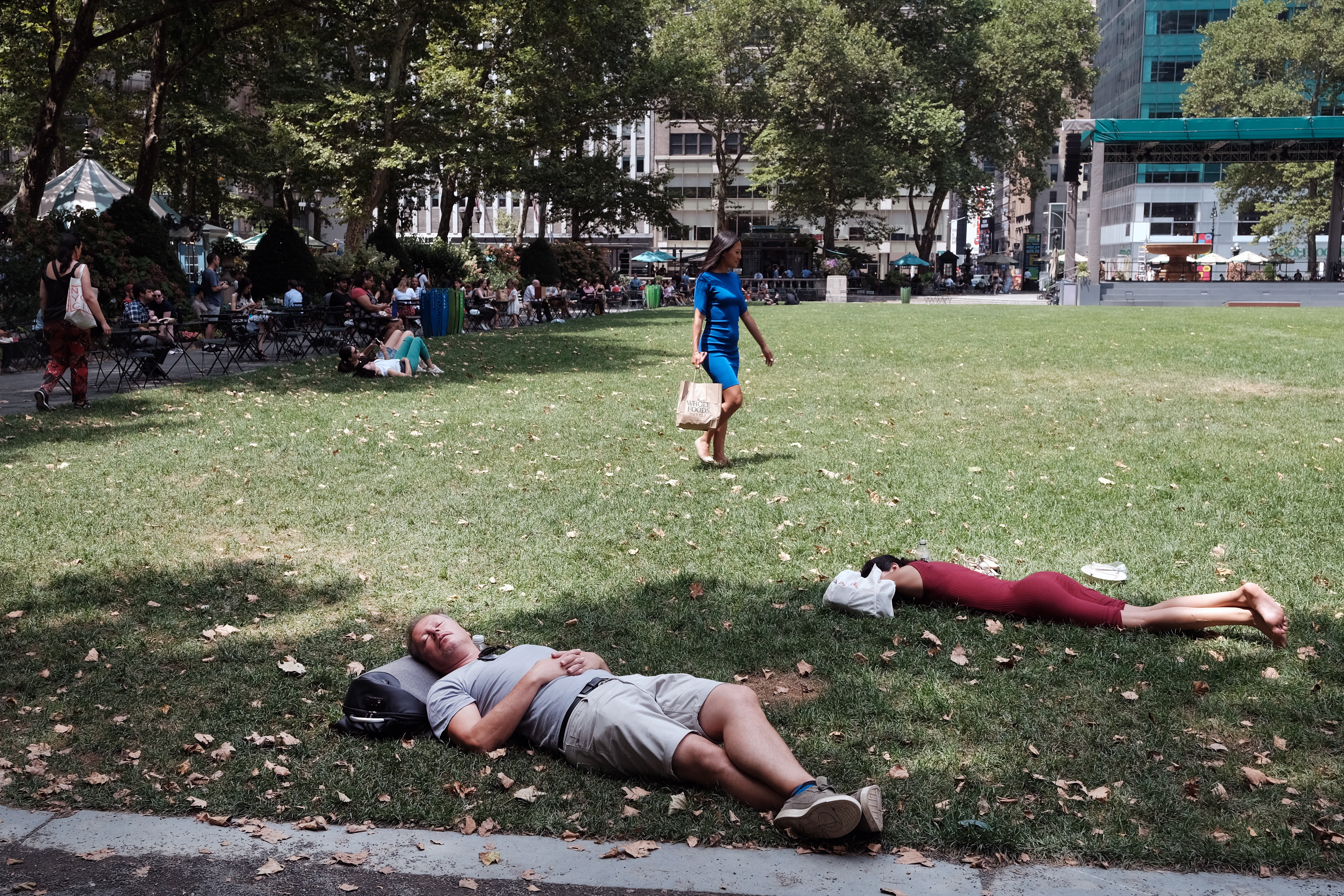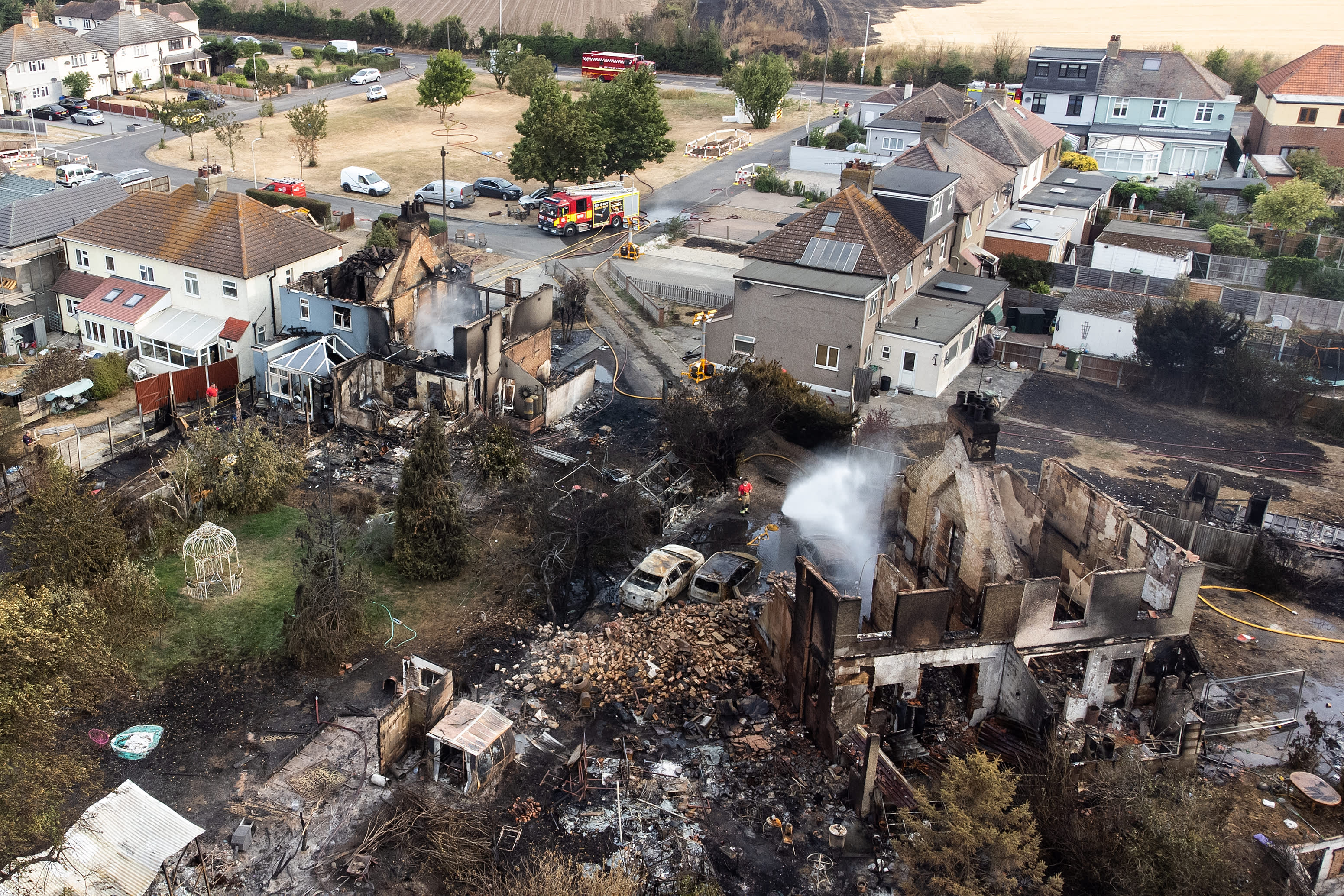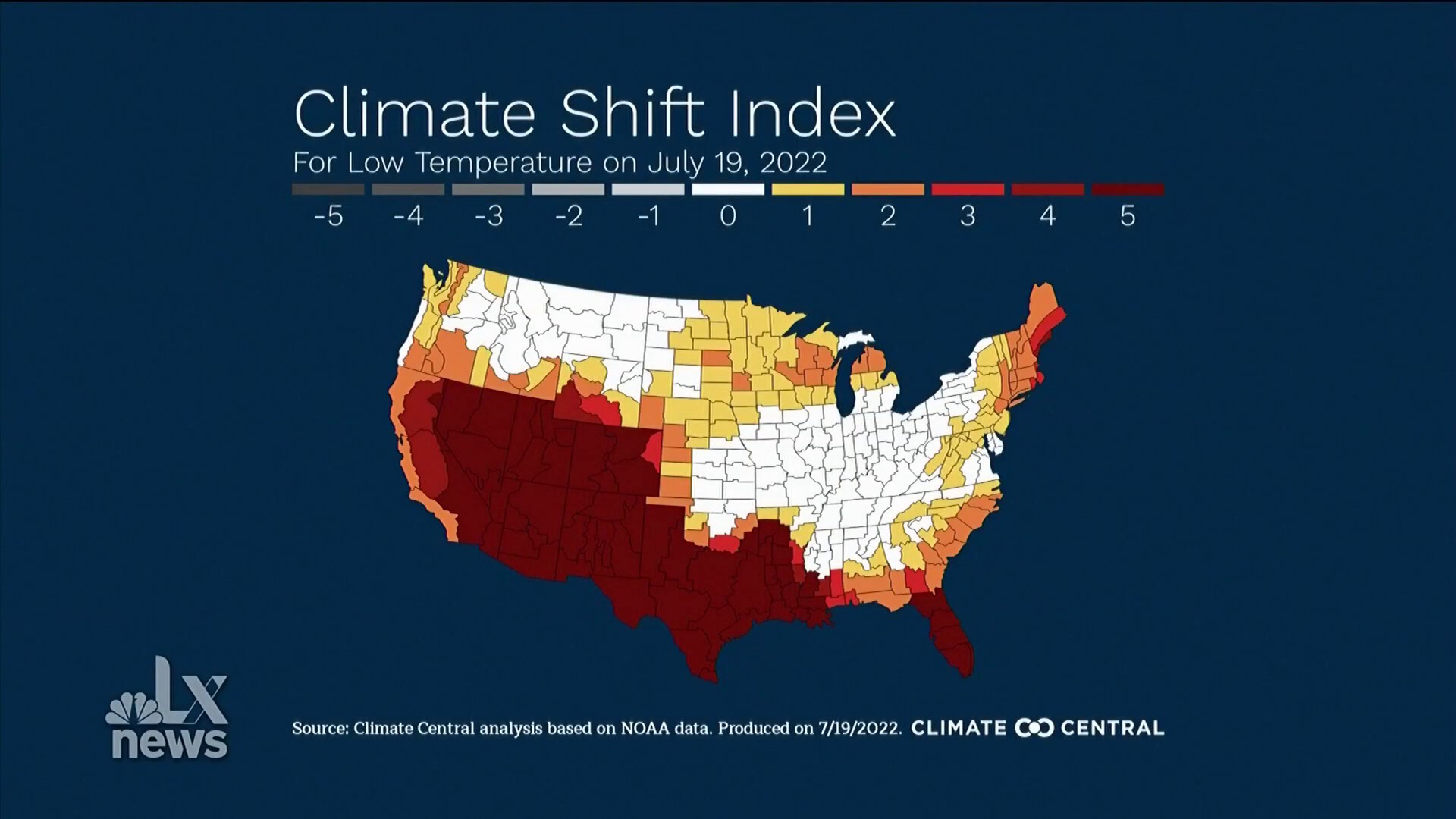What to Know
- A dangerous -- and deadly, in NYC -- stretch of heat for the tri-state area finally relented for most on Monday, as afternoon storms stopped temperatures from hitting 90 degrees for many.
- After the storms moved on, the heat will break thanks to a cold front slowly moving through around midnight, bringing temperatures down into the low 80s following a stretch that saw Newark, New Jersey, hit 100 degrees five days in a row
- The next chance for storms comes Thursday into Friday, but that will set up very pleasant weekend weather
Powerful storms hit the tri-state area once again Monday amid a blistering, and deadly, stretch of heat that saw New Jersey's largest city hit 100 degrees for five straight days, the longest such streak on record.
In New York City, one person died of heat-related exposure, city officials said over the weekend. The person also had some underlying health conditions. The death is the first locally known to be connected to this debilitating heat, officials said.
But the good news is, that heat is now gone, with much more seasonable temperatures for the foreseeable future.
Get Tri-state area news and weather forecasts to your inbox. Sign up for NBC New York newsletters.
That's because of storms that fired up starting early Monday afternoon, as the slow-moving cold front to end the miserable heat wave inched nearer. Severe thunderstorm and flash flood warnings were issued for a bevy of New York and New Jersey counties before lunch. About 15,000 were without power by mid-afternoon, the vast majority of which were Central Hudson customers.
Check the latest severe weather alerts in your neighborhood.
The severe threat continued into the evening, although most if not all of the storms had moved out to sea by 8 p.m.
The cold front will finally sweep through the area around midnight, making Tuesday much more comfortable as the heat breaks and humidity goes way down. Dew points had consistently been in the 70s or so for much of the heat wave — those drop down to the 50s for Tuesday, making it feel much more comfortable outside.
It will be a change for the better, as Monday was the last day the heat wave in Newark, New Jersey, which hit 102 degrees Sunday. It was the fifth day in a row and marks the longest stretch of days at 100 or higher in the city's recorded history. Newark typically only sees one day a year with 100 degree temperatures, so five in a row with the worst of summer yet ahead? Yikes.
While the heat wave was extended Monday for Newark, it finally ended for NYC, where temperatures peaked in the mid-80s after a six-day stretch of brutal heat. Heat advisories were in effect for most in the tri-state area Monday, though were cancelled by the mid-afternoon as the thunderstorms kept temperatures down.
The city had its official heat wave of the summer last week, with Thursday being the third straight day in the city where temperatures hit 90 degrees or above. This heat wave has been both hotter and longer.
Highs in the mid-80s can be expected for Tuesday, which is much more typical for this time of year. Temperatures will climb back into the upper 80s for much of the rest of the week, but it will feel much more pleasant compared to last week.
Showers and storms are possible Thursday into Friday, as another cold front moves through to end the work week, but it should push through in time to deliver very nice conditions for the coming weekend.
Track any approaching weather using our interactive radar below.
Miserable Heat Stretch Taxes Power Grids
In order to monitor any potential outages in networks under a lot of stress during the heat wave, Con-Ed opened its emergency response center to deal with the increased demand. The utility is asking New Yorkers to conserve energy by turning off A/C in unoccupied rooms and to use dishwashers or laundry early in the morning or late at night, rather than during peak hours.
"If people do lose power, we can respond to those outages and restore power as quickly and safely as possible," a Con Edison spokesperson said.
The utility also had some tips for saving energy:
- Set air conditioners to 78 degrees
- Use timers to set cooling systems to begin working no more than an half hour before returning hom
- Don't use A/C when no one is home
- Reduce indoor lighting
- Unplug unused electronics
Looking for an NYC cooling center? Find the closest one to you right here.
More Weather
New Yorkers should learn the risk factors and symptoms of heat-related illness to protect themselves and those they love.
Symptoms of heat stroke include:
- Hot, dry, red skin
- A rapid pulse
- Rapid and shallow breathing
- A body temperature higher than 105°
- Loss of alertness, confusion, and/or loss of consciousness.
Learn more and find cooling center locations here.




